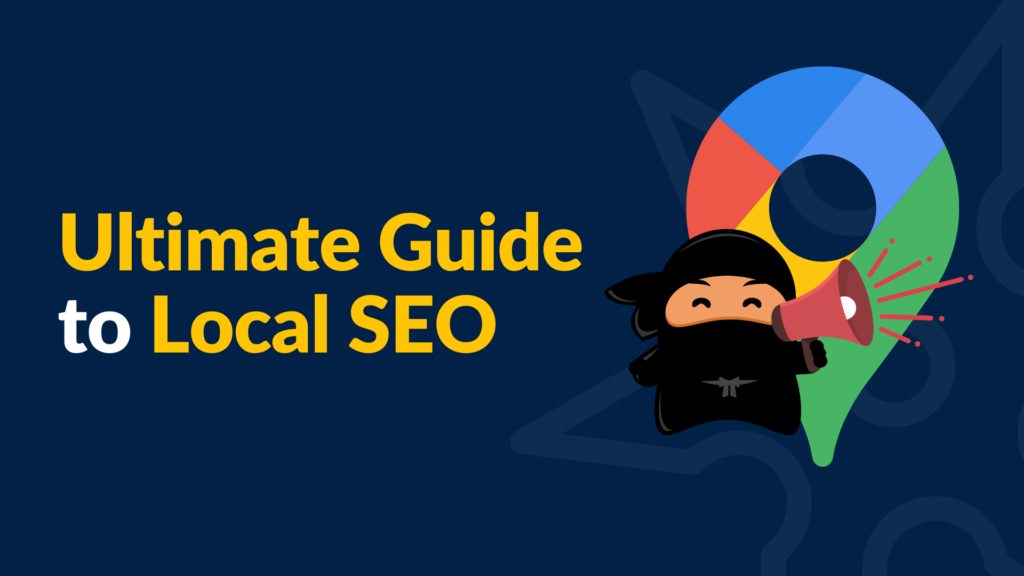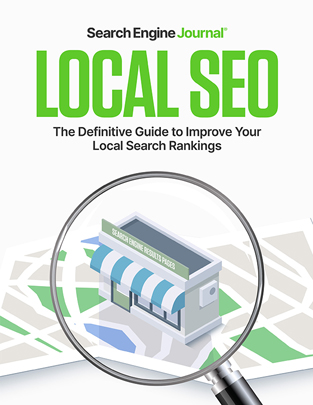
In “The Ultimate Guide to Local SEO,” you will discover the essential strategies and tips to improve your online visibility on a local level. Whether you run a small business or are a local entrepreneur, this comprehensive guide will provide you with valuable insights on how to optimize your website, engage with customers, and enhance your rankings on search engine results pages. From understanding the importance of local keywords to leveraging online directories and customer reviews, this guide will empower you to harness the power of local SEO and drive more traffic to your business.
What is Local SEO?
Local SEO refers to the practice of optimizing your website and online presence to rank higher in local search results. It focuses on targeting customers in your specific geographic area by using location-based keywords and strategies. By implementing local SEO techniques, you can increase your visibility to local customers and drive more targeted traffic to your website.
Definition of Local SEO
Local SEO is a digital marketing strategy that aims to improve the visibility and online presence of businesses in specific geographical locations. It involves various techniques such as optimizing business listings, targeting location-based keywords, and generating local citations and reviews. The ultimate goal of local SEO is to increase brand awareness, attract more local customers, and drive traffic and conversions for local businesses.
Importance of Local SEO
Local SEO is crucial for businesses that operate on a local or regional scale. When potential customers search for products or services in their area, they are more likely to choose businesses that appear in the top local search results. By optimizing your website for local SEO, you can ensure that your business is easily found by local customers when they are in need of your products or services. This can lead to increased brand visibility, customer trust, and ultimately, more sales and revenue for your business.
Differences between Local SEO and Organic SEO
While both local SEO and organic SEO share similarities in optimizing websites for search engines, they have key differences. Organic SEO focuses on ranking websites for broader and non-location specific keywords, whereas local SEO targets location-based keywords to attract local customers. Local SEO also involves optimizing business listings on local directories and generating local citations and reviews, which are not typically part of organic SEO strategies. Additionally, local SEO prioritizes improving website visibility in map results and local pack listings, while organic SEO focuses on ranking higher in organic search results.
Setting Up Local SEO
Setting up local SEO involves a series of steps to ensure that your business is properly optimized for local search. By following these steps, you can increase your chances of appearing in local search results and attracting local customers to your website.
Create a Google My Business Account
The first step in setting up local SEO is to create a Google My Business (GMB) account. GMB is a free tool provided by Google that allows businesses to manage their online presence on Google Search and Maps. By creating a GMB account, you can provide accurate and up-to-date information about your business, such as your address, phone number, hours of operation, and website. This information will be displayed in local search results and help potential customers find and contact your business.
Optimize Your Google My Business Profile
Once you have created a GMB account, it is important to optimize your profile to maximize its impact on local search results. This involves adding relevant and descriptive business categories, selecting the correct location on the map, and uploading high-quality photos that showcase your products or services. It is also important to regularly update your GMB profile with any changes to your business information to ensure accuracy.
Claim and Optimize Local Directory Listings
In addition to GMB, there are numerous local directories and review sites where you can claim and optimize your business listing. Examples include Yelp, Bing Places, and Yellow Pages. Claiming and optimizing these listings can improve your online visibility and increase the chances of your business appearing in local search results. Be sure to provide consistent and accurate information across all directories, and encourage your customers to leave reviews on these platforms.
Optimize Your Website for Local SEO
Your website plays a crucial role in local SEO. To optimize your website for local search, start by including your business name, address, and phone number (NAP) on every page, preferably in the footer or header. This helps search engines understand the geographic location of your business. Additionally, consider creating location-specific landing pages that target relevant keywords for each location you serve. These pages should include location-specific information, such as testimonials from local customers or details about local events or partnerships.

Keyword Research for Local SEO
One of the key aspects of local SEO is conducting keyword research to identify the most relevant and effective keywords to target for your local business. By using location-specific keywords, you can better align your website content with the search intent of local customers.
Importance of Localized Keywords
Localized keywords play a crucial role in local SEO as they help search engines understand the geographic relevance of your website. By including keywords with local modifiers (e.g., “best pizza in [city]”) in your website content, you increase your chances of appearing in local search results when potential customers search for products or services in their area. Localized keywords also help differentiate your business from competitors and attract more targeted traffic to your website.
Using Google Keyword Planner
Google Keyword Planner is a powerful tool that can help you identify and refine your list of localized keywords. By entering your location and industry-specific keywords, the tool can provide you with insights into the average monthly search volume and competition level for each keyword. This information allows you to prioritize the most valuable keywords and create content that aligns with the search habits of local customers.
Competitor Analysis for Local SEO Keywords
Analyzing the keywords that your competitors are targeting can provide valuable insights for your own local SEO strategy. Tools like SEMrush or Ahrefs can help you identify the keywords your competitors are ranking for and the organic traffic they are generating. This information can help you identify untapped keyword opportunities and refine your keyword targeting to better compete in the local search landscape.
Creating Localized Content
Creating high-quality and localized content is vital for local SEO. By incorporating location-specific keywords and information, you can attract more local customers and improve your website’s visibility in local search results.
Using Location-Specific Keywords
To optimize your content for local SEO, it is essential to incorporate location-specific keywords naturally throughout your website. For example, if you are a landscaping company in Seattle, include keywords such as “Seattle landscaping services” or “best landscapers in Seattle” in your website copy. Be sure to include these keywords in your title tags, headers, meta descriptions, and within the body of your content. However, ensure that the keywords are used in a way that enhances the overall readability and user experience.
Writing Location Pages
Location pages are a valuable asset for local businesses with multiple locations. Each location page should be dedicated to providing detailed information about a specific location, including its address, phone number, business hours, and unique offerings. Besides, incorporate localized keywords within the content of each location page to improve its visibility in local search results. Be sure to keep the content on each location page unique and relevant to the specific location to avoid keyword cannibalization.
Creating Localized Blog Posts
Maintaining an active blog can significantly benefit your local SEO efforts. By creating localized blog posts, you can target location-specific keywords and provide valuable information to local customers. For example, if you own a bakery in San Francisco, you can create blog posts about the best bakeries in various neighborhoods or share recipes that are popular in the local community. This not only helps improve your website’s visibility but also positions your business as an authority in the local industry.
Adding Local Information on Web Pages
In addition to ensuring that your website content includes location-specific keywords, consider adding relevant local information to your webpages. This can include mentioning nearby landmarks, popular attractions, or local events. By associating your business with the local community, you can further establish your relevance and authority in the eyes of both search engines and potential customers.

Local Citations and Reviews
Local citations and reviews play a crucial role in local SEO by influencing your online reputation and search rankings. By optimizing business listings on local directories and actively encouraging and managing online reviews, you can boost your credibility, attract more customers, and improve your local search visibility.
Importance of Local Citations
A local citation refers to any mention of your business name, address, and phone number (NAP) on other websites or online directories. These citations act as references to your business and help search engines verify the accuracy of your business information. By consistently and accurately displaying your NAP across a wide range of reputable directories, you can improve your local search rankings and ensure that potential customers can easily find your business online.
Optimizing Business Listings on Local Directories
To optimize your local citations, start by claiming and verifying your business listings on popular local directories such as Yelp, Bing Places, and Yellow Pages. Ensure that your NAP information is accurate and consistent across all directories. Additionally, take advantage of any additional features these directories provide, such as uploading photos, adding business descriptions, and selecting appropriate business categories. The more complete and optimized your business listings are, the higher the chances of your business appearing higher in local search results.
Encouraging Online Reviews
Online reviews not only provide valuable social proof for potential customers but also influence your search rankings. Encourage your satisfied customers to leave reviews on platforms like Google My Business, Yelp, and other relevant industry-specific review sites. You can do this by including links to review platforms on your website, sending follow-up emails after a purchase or service, or even incentivizing customers to leave reviews through special discounts or offers. However, it is essential to follow each platform’s guidelines and refrain from offering incentives in exchange for positive reviews.
Monitoring and Responding to Reviews
Monitoring and responding to online reviews is essential for maintaining a positive online reputation. Regularly check review platforms for new reviews and respond promptly to both positive and negative feedback. Express your gratitude to customers who leave positive reviews and address any negative feedback in a professional and helpful manner. Demonstrating responsiveness and actively managing your online reputation can help build trust with potential customers and mitigate the impact of any negative reviews.
Link Building for Local SEO
Link building is an important aspect of local SEO as it helps search engines determine the credibility and relevance of your website. By building relationships with local websites and directories and actively seeking local links, you can improve your website’s authority and visibility in local search results.
Importance of Local Links
Local links are links that originate from websites within your local community or industry. These links provide signals to search engines that your website is relevant and trustworthy within a specific geographic area. By acquiring local links, you can increase your website’s authority and improve its chances of ranking higher in local search results.
Building Relationships with Local Websites
Building relationships with local websites can help you acquire valuable local links. Consider reaching out to local businesses, organizations, or community groups and offering to contribute guest blog posts or be featured on their websites. You can also sponsor local events or charities and request a link back to your website. By actively engaging with the local community, you can increase your chances of gaining relevant local links and enhancing your local SEO efforts.
Submitting Your Website to Local Directories
Submitting your website to relevant local directories can also help improve your local SEO. Look for directories that focus on your specific industry or location and submit your website for inclusion. Examples include local chamber of commerce websites, trade association directories, and industry-specific business directories. Be sure to include accurate and up-to-date information about your business on these directories to ensure consistency and credibility.

Optimizing for Mobile and Voice Search
In today’s mobile-first and voice-driven world, optimizing your website for mobile and voice search is crucial for local SEO success. By ensuring that your website is mobile-friendly, optimizing for voice search queries, and implementing structured data markup, you can maximize your visibility and reach local customers across various platforms.
Mobile Optimization for Local SEO
As mobile devices continue to dominate internet usage, having a mobile-friendly website is essential for local SEO. Ensure that your website is responsive and adapts seamlessly to different screen sizes. Optimize your website’s loading speed, improve its mobile navigation, and make sure that the content is easily readable on smaller screens. By providing a smooth and user-friendly mobile experience, you can enhance your local SEO efforts and cater to the growing number of mobile users.
Optimizing for Voice Search
Voice search is becoming increasingly popular, especially with the rise of virtual assistants like Siri, Alexa, and Google Assistant. Optimizing your website for voice search is crucial for local SEO as voice queries often contain conversational and location-specific keywords. To optimize for voice search, consider incorporating long-tail and natural language keywords into your website content. Use frequently asked questions (FAQs) that address common voice search queries and provide concise and conversational answers. By aligning your content with voice search queries, you can increase the likelihood of your website appearing in voice search results and attracting local customers.
Using Structured Data Markup for Local SEO
Implementing structured data markup, also known as schema markup, can help search engines understand the information on your website better. When it comes to local SEO, structured data markup can be particularly beneficial. By adding schema markup related to your business’s address, phone number, operating hours, and other relevant information, search engines can display this information in local search results. This can enhance the visibility and credibility of your business, making it more likely to attract local customers.
Online Reputation Management
Managing your online reputation is crucial for local SEO and overall business success. By actively monitoring and addressing negative feedback, generating positive online reviews, and implementing reputation management strategies, you can build a strong online reputation that attracts more customers and enhances your local search rankings.
Monitoring Your Online Reputation
Regularly monitor your online presence and reputation by setting up Google Alerts or using reputation management tools. This allows you to stay informed about mentions of your business online, including reviews and feedback. By promptly addressing any negative feedback or addressing potential issues, you can mitigate the impact on your reputation and demonstrate your commitment to providing excellent customer experiences.
Addressing Negative Feedback
Receiving negative feedback is unavoidable, but how you respond to it can make a significant difference in your online reputation. When faced with negative feedback, respond in a professional and empathetic manner. Apologize for any inconvenience caused and offer a solution or compensation where appropriate. By handling negative feedback with care and providing a positive resolution, you have the opportunity to turn a dissatisfied customer into a loyal advocate for your business.
Generating Positive Online Reviews
Positive online reviews can significantly impact your local SEO and overall reputation. Actively encourage your satisfied customers to leave reviews on platforms like Google My Business, Yelp, and other relevant review sites. Highlight the value of their feedback and make it easy for them to leave a review by providing links or instructions. Additionally, consider sending follow-up emails or surveys to gather feedback and identify opportunities for improvement. By consistently generating positive reviews, you can build trust with potential customers and improve your local search rankings.
Implementing Reputation Management Strategies
Implementing reputation management strategies can help you maintain a positive online reputation and address any potential issues proactively. This can include monitoring and responding to online reviews, addressing customer concerns in a timely manner, and actively engaging with customers on social media. Additionally, incorporating reputation management into your overall marketing strategy can help you build a strong brand reputation and foster trust among local customers.

Tracking and Analytics for Local SEO
To measure the effectiveness of your local SEO efforts and identify areas for improvement, it is essential to track and analyze relevant data. By setting up Google Analytics, tracking local SEO performance, and using tools like heatmaps and conversion tracking, you can gain valuable insights and make data-driven decisions for your local SEO strategy.
Setting Up Google Analytics for Local SEO
Google Analytics is a powerful tool that provides in-depth insights into your website’s performance. By setting up an Analytics account and integrating it with your website, you can monitor various metrics that are relevant to your local SEO efforts, such as organic traffic, bounce rates, and conversion rates. This data allows you to assess the impact of your local SEO strategy and identify areas for improvement.
Tracking Local SEO Performance
To track your local SEO performance, start by monitoring your website’s organic search traffic, specifically focusing on traffic from local search queries. Look for increases or declines in traffic from certain locations and compare it to your overall online and offline business performance. Additionally, track the visibility of your website in local search results by monitoring your rankings for location-specific keywords. These metrics can provide valuable insights into how your local SEO efforts are influencing your online visibility and attracting local customers.
Analyzing Local SEO Data
Analyzing the data from your local SEO efforts can provide valuable insights and help you refine your strategy. Look for patterns or trends in your website’s performance and identify areas where you can make improvements. For example, if you notice a high bounce rate for visitors from a specific location, you may need to optimize your content or website design to better cater to their needs. By regularly analyzing your local SEO data, you can make informed decisions and continually optimize your strategy for better results.
Using Heatmaps and Conversion Tracking
Heatmaps and conversion tracking tools can provide additional insights into user behavior on your website. Heatmaps visually represent where users click, scroll, or spend the most time on your webpages. This can help you identify areas of interest or potential improvements on your website. Conversion tracking allows you to track specific actions that users take on your website, such as form submissions or purchases. By understanding how users interact with your website and which actions lead to conversions, you can optimize your website for better user experience and increased conversion rates.
Local SEO for Multiple Locations
For businesses with multiple locations, optimizing for local SEO can pose unique challenges. However, by creating separate location pages, optimizing your Google My Business listings, and effectively managing your local SEO efforts for each location, you can maximize your online visibility and attract customers in each specific area.
Creating Separate Pages for Each Location
If your business has multiple locations, it is important to create separate location pages for each one. Each location page should include unique and relevant content specific to that location, including its address, phone number, business hours, and any location-specific offerings. By creating dedicated location pages, you can better target location-specific keywords and improve the chances of each location appearing in local search results.
Optimizing Google My Business for Multiple Locations
Optimizing your Google My Business (GMB) listings is vital for local SEO, especially for businesses with multiple locations. Ensure that you create and optimize a separate GMB profile for each location. This includes providing accurate and consistent information across all profiles, selecting the correct location on the map, and regularly updating your profiles with any changes to your business information. By optimizing your GMB profiles for each location, you improve their chances of appearing prominently in local search results.
Managing Local SEO for Multiple Locations
Managing local SEO for multiple locations requires careful coordination and monitoring. Regularly audit and update your website’s location-specific content and check the accuracy of your NAP information across all directories and listings. Monitor the performance and visibility of each location in local search results and refine your strategies based on individual location analytics. Additionally, encourage each location to actively engage with the local community and build relationships with relevant local websites and organizations. By effectively managing local SEO efforts for each location, you can maximize your online visibility and attract customers in each specific area.
In conclusion, local SEO is a vital component of any business’s digital marketing strategy. By implementing the steps outlined above, such as creating a Google My Business account, conducting keyword research, creating localized content, and actively managing your online reputation, you can enhance your local search visibility, attract more targeted traffic, and ultimately drive more conversions and revenue for your local business. Remember, local SEO is an ongoing process that requires consistency, monitoring, and continual optimization to stay ahead in the competitive local search landscape.








